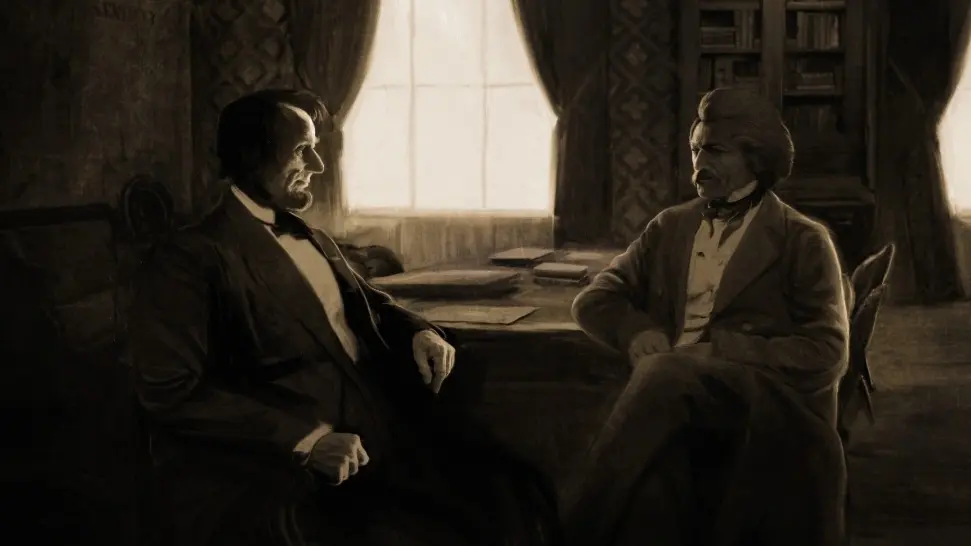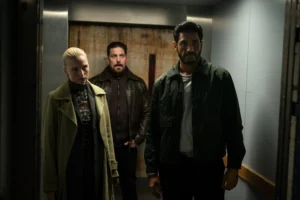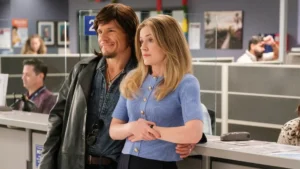Summary
Eye-opening, morally complex, thought-provoking.
Apple TV+ docuseries Lincoln’s Dilemma was released on the streaming service on February 18, 2022.
Apple TV+ has an exposure problem. That is something they hope CODA will change in the few weeks. The small streaming service pales compared to the other streaming giants. Their shows or films will never be discussed around the water cooler and become breakout hits no matter how good. However, when it comes to documentaries, like Boys State and docuseries, such as the brilliant 1971: The Year That Music Changed Everything, they have created spectacular achievements. Their latest, Lincoln’s Dilemma, is no exception, a documentary series that is eye-opening and layered with thought-provoking moral complexities.
The docuseries is based on award-winning historian David S. Reynolds’ non-fiction book, Abe: Abraham Lincoln in His Times. The adaptation takes a “holistic” view of the Lincoln lore as the “Great Emancipator.” What do we mean by that? So much is focused on President Lincoln’s emancipation of the enslaved people. The history books we teach our children in this country come from a strict European Anglo-Saxon lens. What happened was a game of morality Risk. This is an epic chess match of lofty human codes that had unintended consequences. And even our great leader’s unconscious biases.
Directed by Barak Goodman and Jacqueline Olive, Lincoln’s Dilemma comes to life with an expansive and richly detailed narrative. The series is narrated by Jeffrey Wright (The French Dispatch), whose voice reverberates as they weave in historical documents, words from mythical figures, and historians from an old “Lilly” white lens. However, most importantly, included are experienced and youthful African American historians. That’s what Goodman and Olive do so well. They combine Reynolds’ work that is highlighted by the latter’s insights.
There are issues rarely discussed. For example, the subject of Lincoln’s documented views of caring more about the Union than ending slavery. Or his detailed plan of the taboo subject of Colonialism. Did he believe that even as the victor, the white majority race could live peacefully with the once enslaved? His idea was simple. Take the now released and ship them back to Africa or Caribbean island countries as rental properties. It’s a shocking reveal. One that lasts with you as you ponder one historian’s viewpoint by saying Honest Abe tricked more modern historians than his then political rivals.
Side note: I should quickly point out the beautiful digital animation used for this docuseries. Many will have preconceived notions that this will be a stuffy and stale series. However, animating still shots and beautiful animation of scenes gives the genre a fresh makeover. It’s lively and will keep the viewer engaged.
Was it all a ruse? Yes, Lincoln wanted to end slavery save the Union, but didn’t want them to live next door? Lincoln was also a product of his time. Would that be a surprise were giving the once enslaved a one-way ticket home would be humane? As the war grew, white northerners massacred black men, women, and even children, blamed for the ongoing war efforts. Of course, how can you possibly abandon a group of people who built the United States of America?
It’s a fight for the respect that we still have today. Nearly 160 years later, the series shows clashes and protests over a controversial Lincoln statue. All this makes you ponder if Lincoln may have been right to be concerned. Not that he wanted to eliminate the “freed slave” problem. But if he were worried, they would continue to be killed and oppressed. Or would they represent ongoing dissension within the Union? More likely, the issue of Colonialism was so acceptable even the most moral men considered immoral ideas.
Those are the questions, and many more, that are brought to life that now seems apparent. However, the reality must have been viewed as insurmountable to achieve. As President Lincoln (voiced by Bill Camp) was waging war with the South, he had generals who refused to engage in battle. And political rivals poked him from every angle, all. In contrast, Frederick Douglas (voiced Leslie Odom, Jr.) kept him honest and on-point. Because his greatest fear was Lincoln would not give back slavery to the South to end the war.
The pressure was tremendous, yet, as the series points out, nowhere near how enslaved people were treated, tortured, and terrorized. This is an eye-opening moment as a statue of Lincoln over a young enslaved boy is kneeling before him. This is the definition of a “white-savior” mentality branded in history. Rarely is Lincoln empowered freedmen to join the Union cause. But not as an act of empathy. Not at all. But to replenish his ranks to put together a patchwork resurrection of the Union.
We have talked about using a “Lens” in Lincoln’s Dilemma. The fact of the matter is that the series is a rousing success in viewing the civil war through Critical Race Theory. The framework does not change history; it reveals hidden truths. That’s what happened here. By looking at Reynold’s exceptional book through a critical lens, we have a blazing portrait of a man that is now three-dimensional.
And an even more honest Abe than before.
What did you think of the Apple TV+ docuseries Lincoln’s Dilemma? Comment below!




